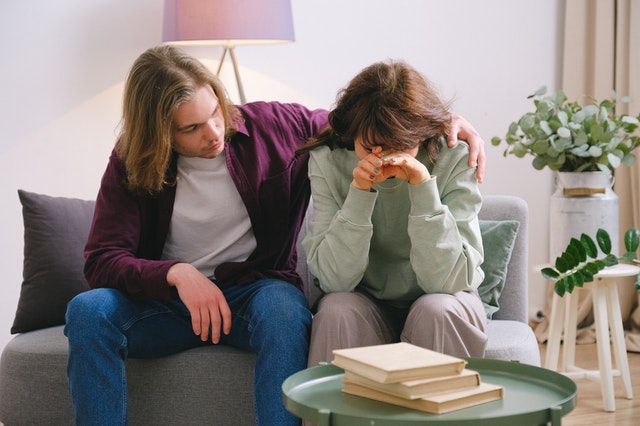
It’s hard to accept and painful to admit. When you know you’re using more than you used to, or more than you’re prescribed, talking about it seems impossible. You might be afraid or ashamed. Anyone would, it’s only human. You’re not alone in this, substance abuse is a national crisis. Anyone can be affected by addiction, no matter their gender or age. Asking for help is all you have to do, but that’s the hard part. If you’re ready to face your addiction to alcohol, pills, downers, or drugs here are some tips to make asking for help more doable. You can do this!
Five Things to Consider
1. Who you go to matters.
You should be comfortable with the person you choose to confide in. Being uncomfortable can lead to feeling like they or judging you are looking down on you in some way. Feeling like you’re being judged makes it harder to be completely honest about the extent of the problem you’re having. Think about the people you have in your life.
Do you have a close family member, friend, or significant other you would feel comfortable confiding in? Is there someone in your life who has recovered from addiction that can point you in the right direction? Once you have identified who to talk to you need to focus on what you will say.
2. Being 100% honest is extremely important.
You can only heal from the hurts you’re willing to admit to. Knowing that you have a problem will not begin to fix the problem until you can acknowledge how serious the problem is. Ask yourself how much more you’re taking now than you were when you were first prescribed, or first started taking pills. Are you using other substances as well? How often do you drink? Do you feel as if you cannot even get out of bed without knowing you have alcohol or pills to help you get through the day? All these questions can help you figure out how bad of a problem you have. Then when you go to speak with someone, you’ll have a more in-depth understanding of your situation.
3. There is no one-size-fits-all method for overcoming any addiction.
There are several options available from 12 Step meetings to Intensive Inpatient Drug (or Alcohol) Rehabilitation. Not everyone will succeed with any one option. Which method of recovery you choose to pursue is up to you. However, you should be aware of all of your options to find what will best prevent a relapse, or returning to your substance addiction.
When choosing a recovery program you may be concerned about how you could afford the cost of a program. There are several avenues you can go down to cover the costs. If your health insurance will not cover the full costs, sometimes your employment may be willing to help with the costs of an addiction recovery program. You can also ask family and friends for financial support and you could set up a fundraiser on an online site like Go Fund Me. Look around in your local community and see if they have any charity organizations or social programs that will help out with the costs.
4. There’s a difference between supportive friends and using buddies.
There are two kinds of people in your social circles when you’re on drugs of any variety. First are the people in your life who try to convince you that you don’t have a problem. They want you to keep getting high, keep using pills, keep throwing money and time away on the drugs. These are known as using buddies because they’re your buddies as long as you’re using drugs. Once you move toward a clean life, they’ll likely fade away and stop coming around.
Fortunately, you also have supportive people in your life. These friends and loved ones want to help you with your problems. They see you’re hurting. They want to see you healthy and happy. These are the people who you should consider confiding in. As a part of the process of recovery, you will need to remove using buddies from your life and spend more time with others that support your recovery.
5. Withdrawal is nothing to play with.
If you have a history of panic attacks and/or trauma a doctor may prescribe benzodiazepines. While benzodiazepines may help with a condition, be aware they are very easy to get addicted to. If you realize you have become addicted to your prescription medication, it’s important to detox in a facility where you can be monitored. Withdrawal from benzos and other pills or drugs can have serious and even life-threatening effects. For benzos specifically, some of the withdrawal symptoms include:
- Sweating and vomiting
- Headaches and irritability
- Panic or anxiety attacks
- Seizures and Hallucinations
In a detox facility, you will meet professional substance abuse treatment and health care workers who know how to ease benzo withdrawal safely.
Recovery Is Possible
You do not have to do this alone, there is help out there. Remember to be completely honest with yourself first but also with whomever you decide to confide in. Hopefully, together you will be able to find a local facility with a detox program. Once you have a detox from the pills you will have a clear mind and be able to decide if you should pursue further treatment options. Asking for help can seem overwhelming or even impossible. However, it is a crucial first step toward living without drugs.


